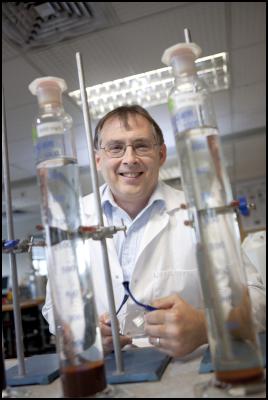Answers needed to solve NZ’s food waste management
Monday, 5 August 2013, 2:55 pm
Press Release: University of Canterbury
Answers needed to solve NZ’s unsustainable food waste management
August 5, 2013
New Zealand needs to find something more economically sustainable to avoid large landfill methane emissions, a University of Canterbury (UC) environmental engineer says.
Ministry for the Environment figures show 2.461 million tonnes of solid waste was disposed at landfills in New Zealand two years ago and Associate Professor Mark Milke says more work needs to be done to deal with waste.
``We should look to take more of the higher quality food waste and co-treat it with wastewater treatment sludges. Projects like this are increasingly common such as in Palmerston North, but much more could be done across the country.
``For lower quality food waste, we need to find a new technology that is less expensive than composting but that avoids landfill methane emissions to the atmosphere.
``This could be achieved by batch anaerobic digestion, where waste is sealed in a bunker for three months. If we can keep the impurity levels low, we can put the end product onto land.
``If we cannot keep impurity levels low, then we need to look at well contained digestion of separated food wastes at landfills before the food waste is mixed with other wastes.
``Our food waste, half from homes and the other half from restaurants, supermarkets, warehouses, food processors, and industries, goes to landfills or to composting systems. Neither of these is sustainable.
``Food waste in landfills produces methane that can be used, but too much of the gas is produced before the gas collection systems are in place. This leads to methane in the atmosphere with severe greenhouse gas impacts.
``Stabilising food waste with composting systems is expensive. It also can often have contaminants that limit the ability to apply the compost to land,’’ Professor Milke says.

Photos: Professor Mark Milke
ENDS
Advertisement - scroll to continue reading
Advertisement - scroll to continue reading
a.supporter:hover {background:#EC4438!important;} @media screen and (max-width: 480px) { #byline-block div.byline-block {padding-right:16px;}}
Using Scoop for work?
Scoop is free for personal use, but you’ll need a licence for work use. This is part of our Ethical Paywall and how we fund Scoop. Join today with plans starting from less than $3 per week, plus gain access to exclusive Pro features.
Join Pro Individual Find out more
Find more from University of Canterbury on InfoPages.